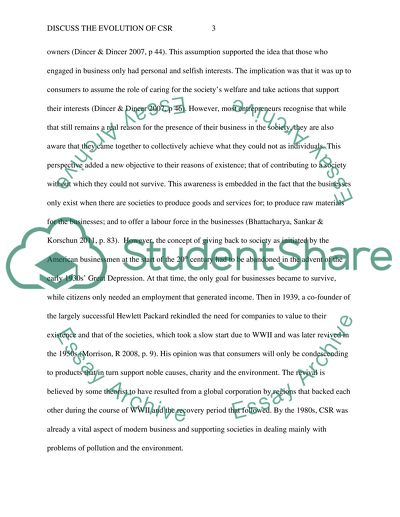Cite this document
(“Discuss the evolution of CSR Essay Example | Topics and Well Written Essays - 2500 words”, n.d.)
Retrieved from https://studentshare.org/law/1491611-discuss-the-evolution-of-csr
Retrieved from https://studentshare.org/law/1491611-discuss-the-evolution-of-csr
(Discuss the Evolution of CSR Essay Example | Topics and Well Written Essays - 2500 Words)
https://studentshare.org/law/1491611-discuss-the-evolution-of-csr.
https://studentshare.org/law/1491611-discuss-the-evolution-of-csr.
“Discuss the Evolution of CSR Essay Example | Topics and Well Written Essays - 2500 Words”, n.d. https://studentshare.org/law/1491611-discuss-the-evolution-of-csr.


